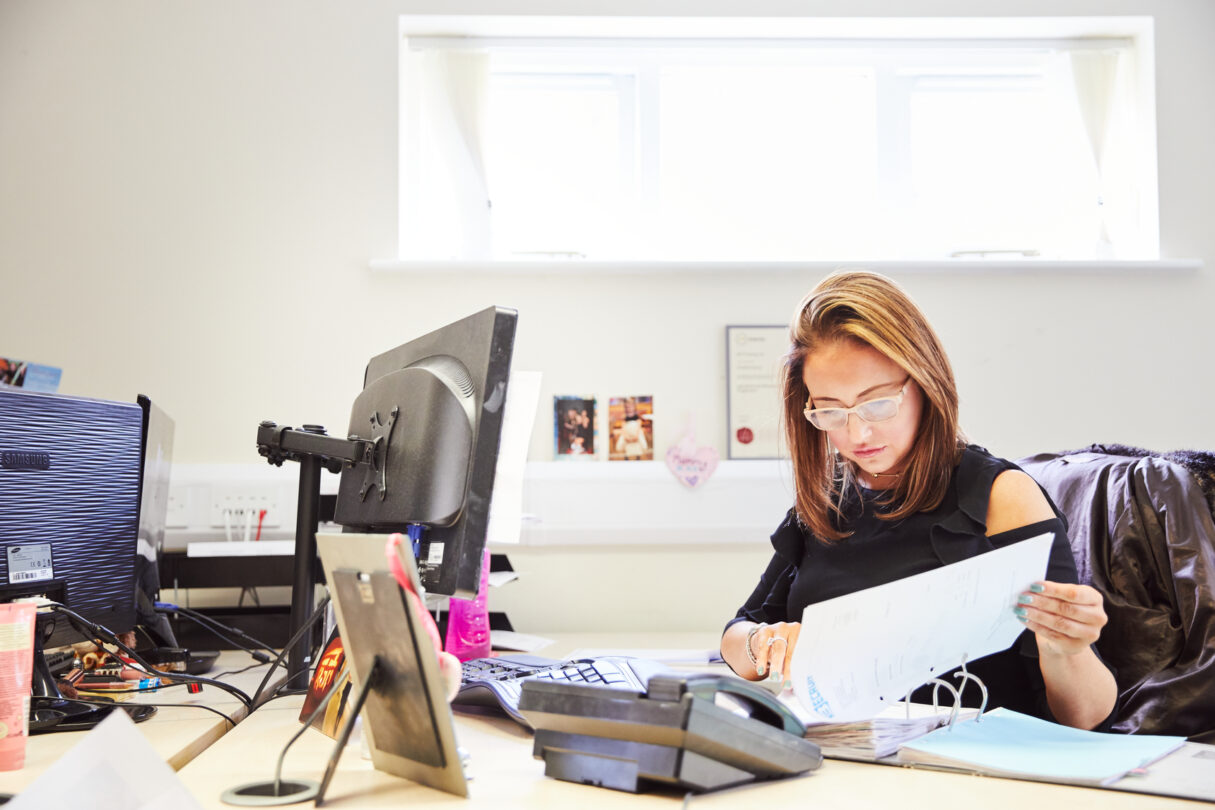People & Leadership
Moore Accountancy: ‘Supporting our clients during coronavirus has been really important’
The founder of Moore Accountancy talks about helping clients and managing her workforce during the coronavirus outbreak.

In our Your Story series, we speak to business owners about the challenges they’re facing and the steps they’re taking to overcome them. Sudipta ‘Sid’ Moore is the founder and principal accountant at Moore Accountancy, based in South Manchester. Here, she provides advice and insight for any service-based businesses adjusting to the new normal in light of the coronavirus outbreak.
Getting through the past few months of coronavirus (COVID-19) disruption has been like ploughing through a dense forest. You can see your goal on the other side and have to persevere in order to get through it.
Having adjusted to home working, I now find myself making plans for the remainder of 2020.
Can I get my staff back into the office, and how should that be done? And how can I help ensure my clients are still around when we get back?
Take advantage of the situation to get a jump on the tax year
We’ve found that some of our sole trader and individual clients have had more time on their hands, because they’re not working during the disruption, so they’ve already dropped off their 2019/20 accounts.
This is very different to most tax years!
But getting it done early helps them plan, because they’ll learn ASAP what their liability is come January. And the rest of this year may be just as tough for them, so this is useful.
I’m still working in the office but none of my staff are. Obviously, I avoid contact with clients.
“With some clients who aren’t generating income, we’ve reduced their fees temporarily to help with their cash flow”
We have a box in the porch where they can drop stuff off. We ask them then to text me to let me know when they’ve been. I let the documents sit in the box for a while to decontaminate.
We’re the registered office for lots of businesses, of course. We’re continuing with our usual policy of scanning in documentation, and then saving it out on a cloud drive.
The difference is that I’m doing the scanning now, rather than somebody else.
But because we’re saving the documents in the cloud, the relevant member of staff can still pick it up at their home and then email it out to the relevant client.
Support your clients and communicate regularly
We’re on retainers with many clients, and haven’t seen much difference in fees. With some clients who aren’t generating income, we’ve reduced their fees temporarily to help with their cash flow.
Q4 of this year might be hard for us and our clients because that’s when the government help schemes all seem to end. But we’re regularly communicating with clients and this helps both us and them.
We can see what work we’re likely to see as the year progresses, but we can also help clients plan and forecast.
Come September, we’re going to have to expect more regular hours from our staff. We can’t keep up completely flexible working forever, because accountancy is a service industry – we just can’t service our clients that way.
Even if our clients resume nine-to-five working patterns, they might still expect to get responses within 24 hours.
Right now, they might get a response, but it might be at 10pm at night if one of our employees has not been able to work in the afternoon because of childcare issues, for example.
Request colleagues update their status
The issue I’ve found most frustrating is simply not knowing where people are up to.
In the office, I can physically see a person’s presence, but right now I’m not sure if somebody’s back from lunch yet, or has had to take a few hours away from their desk for their mental health.
The Band-Aid solution we have in place is a WhatsApp group, where I ask people to declare what they’re up to: “I’m off for lunch,” for example, and then: “I’m back from lunch.”
I encourage people to communicate regularly but, inevitably, they tend to forget.
Training’s been difficult too. We took on a new recruit who’s aiming for an AAT qualification. But screen sharing, Zoom calls, and phone calls aren’t enough.
He needs to be in a real, physical working environment where he can make mistakes and ask questions instantly of people around him.
Experiment with scenario-planning your office return
In a few months, we’ll probably start to reintroduce staff back into the office – perhaps starting with those who don’t have children.
We’ll do it slowly, perhaps asking people to work in the office one or two days out of their week.
“Our new recruit needs to be in a real, physical working environment where he can make mistakes and ask questions”
Everybody has shown they can work effectively from home, or at least as effectively as possible given the current situation. To me, that means they’re still productive and able to maintain a good work/life balance.
But I would hope that, as soon as the school situation is sorted out, people are more in the office than they aren’t.
Shift work for the office might be the answer, to avoid staff overlapping. We may have to experiment.
We’re aiming to maintain the two metre distancing between people and desks. Yes, we’ll still have to share toilets and kitchens, but we hope that lots of hand sanitiser and wipes will help.
Some friendly traditions such as one person making a brew for others might have to stop.
My top three takeaways
Here’s what worked best for our business.
1. Keep clients in the loop via regular communications
It helps them, because you can provide advice, and also helps you understand your position.
2. Take time to celebrate your strengths
My team has battled through this, and we’ve come out stronger on the other side. We’ve realised how resilient we are.
3. Keep people motivated
This is actually more of a mental health concern. Keeping people happy means they want to come to work each day – even if that’s working from home.
Sid Moore was talking to Sage Advice’s Keir Thomas-Bryant.
Want to share Your Story?
If you'd like to tell your business story on Sage Advice and share how you've overcome challenges, send us your details to learn more.







Ask the author a question or share your advice